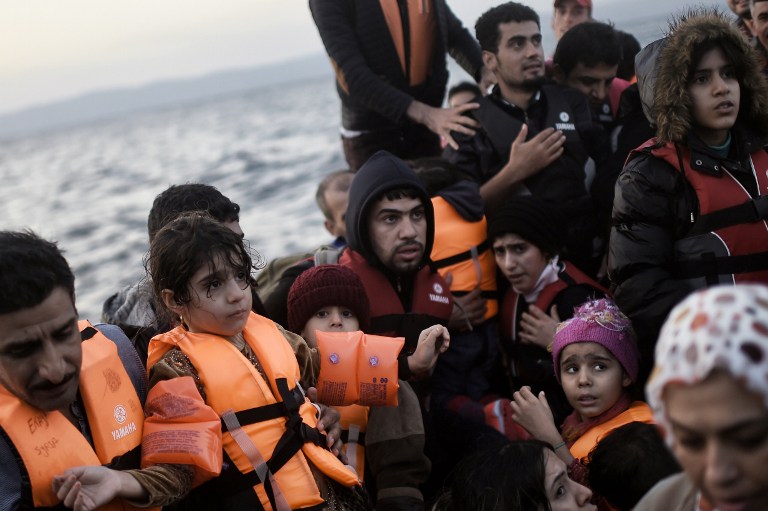-
Tips for becoming a good boxer - November 6, 2020
-
7 expert tips for making your hens night a memorable one - November 6, 2020
-
5 reasons to host your Christmas party on a cruise boat - November 6, 2020
-
What to do when you’re charged with a crime - November 6, 2020
-
Should you get one or multiple dogs? Here’s all you need to know - November 3, 2020
-
A Guide: How to Build Your Very Own Magic Mirror - February 14, 2019
-
Our Top Inspirational Baseball Stars - November 24, 2018
-
Five Tech Tools That Will Help You Turn Your Blog into a Business - November 24, 2018
-
How to Indulge on Vacation without Expanding Your Waist - November 9, 2018
-
5 Strategies for Businesses to Appeal to Today’s Increasingly Mobile-Crazed Customers - November 9, 2018
Economic migrants face deportation as European Union responds to refugee influx
The European Union took measures Thursday to buttress its porous external borders and toughen its migrant return program in an attempt to build a credible refugee policy that would embrace those fleeing for their lives yet punish those merely seeking economic gain.
Advertisement
Ministers on Thursday asked the European Commission, the bloc’s executive arm, to put forward a plan before the end of the year for nations to share responsibility for external border control, a move that could prove controversial because it would introduce EU decision-making into an area that until now has been the preserve of national governments.
Faced with the biggest inflow of migrants in decades, European Union countries have been discussing for months how to reduce numbers arriving from Africa, the Middle East and Asia, often via unsafe crossings of the Mediterranean Sea.
If the list is meant to fast-track the deportation of those hailing from “safe” countries, such an index could potentially be in direct contradiction with the 1951 Refugee Convention, which stipulates that immigration criteria should be considered on a case-by-case basis.
Over 330,000 migrants have entered Hungary this year.
“Increased return rates should act as a deterrent to irregular migration”, the conclusions of the meeting said.
Mogherini also said she has spoken privately to leaders of the Balkans to try “to calm down the situation as much as possible” after tensions involving Serbia, Croatia and Slovenia erupted over the refugee flows.
“In the longer-term, a more ambitious system could be proposed, aimed at creating a European border guard force”, the source said, citing Cazeneuve.
They defended their approach with Jean Asselborn, Luxembourg justice minister, who chaired the meeting, saying strengthening borders and returning those who were not entitled to asylum was part of the fight against illegal migration.
The German state of Bavaria is already planning “emergency measures” to slow arrivals of asylum seekers, including sending a few back to neighbouring Austria, state Premier Horst Seehofer said, directly challenging Chancellor Angela Merkel over the crisis.
Only around 40 percent of people ordered to leave after their asylum applications failed now actually leave or are deported from Europe, he said.
“We need to see Europe upping its game, and we stand ready to support that”.
Italian Interior Minister Angelino Alfano says the first transfer of Eritrean asylum seekers to Sweden is the “practical proof of the success we’ve had in Europe on migration policy”. But doubts are being cast on their workability.
More than any other topic, Austria’s stance toward refugees is determining Sunday’s race for Vienna’s city hall, pitting voters who welcome them against those who fear that a surge of immigrants threatens their own well-being.
Advertisement
“They are distinguishing between good and bad migrants”, said François Gemenne, a research fellow at the French Institute of Political Sciences and at the University of Liège, in Belgium.





























